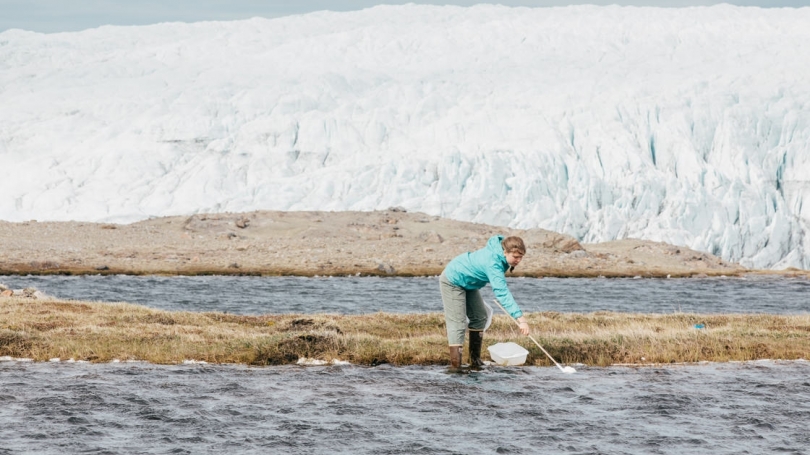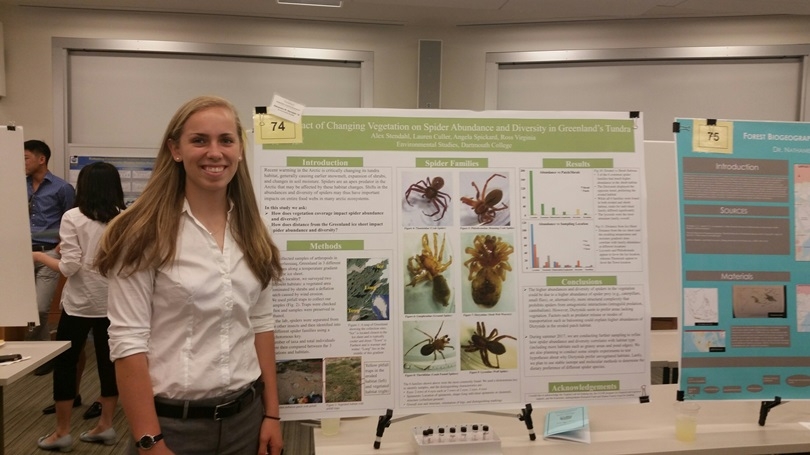In collaboration with ENVS faculty, environmental studies students have numerous opportunities to get hands-on experience with research. Students work alongside fellow undergraduates, graduate students, post-docs and faculty on ongoing research, and they also have the opportunity to design their own projects. Many of these students later write a senior thesis.
Faculty also offer unique opportunities for students to engage with local, national, and international communities and organizations to conduct their research. Students working with Professor Michael Cox have the opportunity to conduct research on the social and ecological dynamics of fishing communities and marine ecosystem management in the Dominican Republic. This research is a collaboration between Professor Cox, Tyler Pavlowich (graduate from Dartmouth's Ecology, Evolution, Ecosystems, and Society PhD program) and AgroFrontera, a Dominican NGO. In the field, students have helped determine fish abundances, quantify fishers' catch, and interview fishers about their perspectives on sustainable fishing. Back at Dartmouth, students have analyzed the data they or other members of the team have collected, as well as led analyses on land cover change and spatial distribution of fishing effort in the study area.
Ross Virginia's lab group studies how rapid environmental change affects ecosystems of the polar regions, with current projects focused on plant-soil interactions, insect diversity and soil erosion in Western Greenland. Students who work with Professor Virginia are immersed in an active and collaborative lab group and typically conduct projects that give them significant laboratory experience. Some students who want to develop a more robust project may also have the opportunity to travel to Greenland to gain a greater understanding of the study system and conduct field research critical to their project's success.
These are just a few examples of the innovative, collaborative, and interdisciplinary research being conducted in environmental studies. Learn more by visiting faculty lab pages at http://envs.dartmouth.edu/research/faculty-research-fields.

